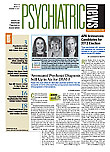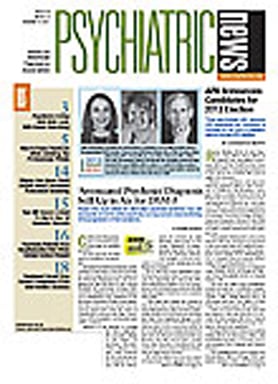Nursing-home residents with advanced functional and cognitive impairment often undergo unnecessary, difficult, and burdensome transitions in care during the last days of their life, said researchers at the Center for Gerontology and Health Care Research at the Warren Alpert School of Medicine at Brown University in the September 29 New England Journal of Medicine.
They defined a "burdensome transition" as any transfer in the last three days of life, a lack of continuity of nursing-home facilities before and after a hospitalization in the last 90 days of life (that is, going from nursing home A to the hospital and then to nursing home B), or multiple hospitalizations in the last 90 days of life.
They evaluated data on 474,829 Medicare decedents from Medicare's Minimum Data Set and claims files from 2000 to 2007, focusing on patients over age 66 with advanced cognitive and functional impairment who were nursing-home residents 120 days before death. About 78 percent of subjects were women and 83 percent were white, with 37.9 percent having less than a high-school education. A total of 54 percent had swallowing problems, and 15.4 percent had recent weight loss. The majority had a do-not-resuscitate order (73 percent) but do-not-hospitalize orders were rare (6.8 percent).
A total of 90,228 (19 percent) of those studied had at least one burdensome transition in the last 90 days of life. Blacks, Hispanics, and those without an advance directive were at higher risk. The rate of burdensome transitions varied regionally, and residence in a region with an increased rate of burdensome transition was generally associated with a poorer quality of care. Insertion of a feeding tube, time spent in an intensive care unit in the last month of life, the presence of a stage 4 decubitus ulcer, or late enrollment in hospice were used as markers of poor quality of care.
"These patients and their family members are especially vulnerable to the adverse consequences resulting from transitions, particularly during end-of-life care," wrote Joan Teno, M.D., a professor of community health and medicine and an associate director of the Center for Gerontology and Health Care Research at the Brown Medical School, and her colleagues. "From a societal perspective, these transitions are costly, and many are potentially avoidable through advance care planning or treatment of infections in the nursing home.
In an editorial in the same issue, Joseph Ouslander, M.D., a professor of clinical biomedical science and an associate dean for geriatric programs in the Charles E. Schmidt College of Science at Florida Atlantic University, and Robert Berenson, M.D., an expert in health care policy associated with the nonpartisan Urban Institute, discussed the clinical and financial considerations associated with efforts to reduce unnecessary hospitalizations of nursing-home residents. "Enhancing the role of palliative care in nursing homes will . . . help align decisions about hospitalization with the individual's overall goals of care," they said.
Gary Kennedy, M.D., a professor of psychiatry and director of the Division of Geriatric Psychiatry at the Montefiore Medical Center of Albert Einstein College of Medicine reviewed the study for Psychiatric News and said it builds on previous work. He acknowledged that the issue is one with both financial and clinical implications. Since a substantial amount of Medicare expenditures occur at the end of life, "even a small reduction in hospitalizations would have a real economic impact," he said. "But more importantly, I believe much of the end-of-life care provided in acute-care hospitals is actually unwanted care that both patient and family would have precluded had they been given careful counseling about alternatives as well as the burdens versus benefits of the interventions."
The study was supported by grants to co-author Susan Mitchell, M.D., M.P.H., from the National Institute on Aging.
An abstract of "End-of-Life Transitions Among Nursing Home Residents with Cognitive Issues" is posted at < www.nejm.org/doi/full/10.1056/NEJMsa1100347 >. The editorial by Ouslander and Berenson, "Reducing Unnecessary Hospitalizations of Nursing Home Residents," is posted at < www.nejm.org/doi/full/10.1056/NEJMp1105449 >.


